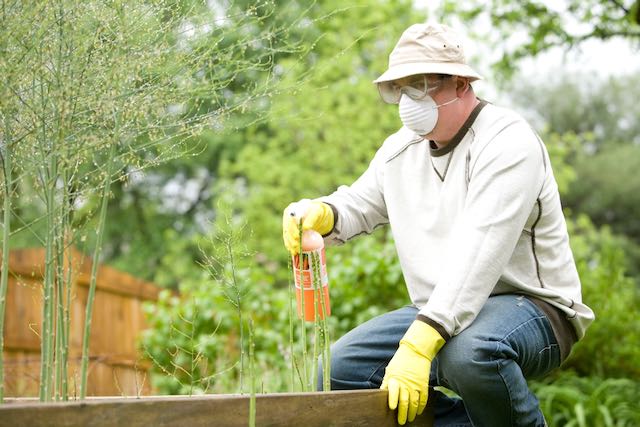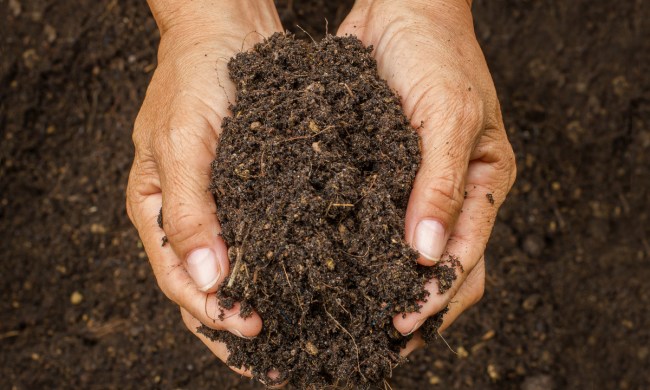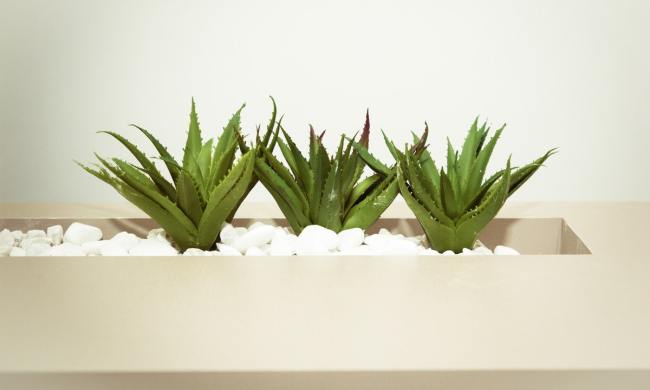Allergies can put a real damper on gardening. They can even make gardening impossible for those who suffer from severe allergies. However, there are ways around this and tricks you can use to get back in the garden and enjoy nature.
How pollen affects gardeners
The main contributor to allergies is pollen. Whether it’s pollen from trees or flowers, these tiny floating particles are what cause runny noses, itchy eyes, and sneezing. When we garden, we are disrupting our plants and causing them to release more of these irritants. This makes allergy symptoms worse and makes a day in the garden a miserable experience and maybe even impossible.

How to reduce the effects of pollen
Although medicine and just avoiding pollen completely are sure-fire ways to prevent allergy symptoms, we don’t want to quit our passion without a fight. Here are some ways to reduce the effects of pollen on your allergies.
- Check the weather forecast for cooler and wetter days. Pollen counts are lower after rains and chilly days. So plan your gardening days around these times if you can.
- Dressing for the part can help, as well. Wearing long sleeves, pants, and gloves can help lower the number of irritants on your skin. Consider wearing a mask as well to reduce the amount of pollen that enters your lungs and nose.
- Do not touch your face while gardening.
- Avoid mowing the lawn yourself, and avoid gardening right after your neighbors have cut their grass. Pay attention to when your neighbors mow their lawn and work around that.
- Leave all your tools outside and consider showering right after working in the garden. Even just changing your clothes can help.
Other allergy triggers in the garden
While pollen is the most common cause of allergies in the garden, there are other factors to be aware of. Digging in the dirt can stir up bacteria and mold growing within the soil. Some of these can be irritants to the skin and cause rashes and itching. Similarly, grass can also cause rashes and itchy skin if you sit in it while gardening. It might be a good idea to find a rolling bench or wear long pants and gloves to avoid these types of allergies.
Pulling weeds in your garden can cause a few allergy symptoms to flare up. The pollen of weeds can irritate the nose and lungs, while the oils from the plants can cause irritated skin. A typical example of this is poison ivy. If you’re allergic to such plants, pulling weeds can quickly become dangerous. Severe reactions to poison ivy can send a person to the hospital. Wear gloves and long sleeves to protect your skin, and do not touch your face while handling plants in the garden.
Taking a bite of a freshly picked tomato is almost irresistible; however, a fresh veggie could cause an allergic reaction if unwashed. Always take the time to wash your fruits and vegetables before taking a bite since they may contain contaminants. In addition to possible contaminants, fresh veggies have a different protein structure than veggies that have been cooked. Many people have a hard time digesting the proteins in their fresh state, but the protein structure changes and allows for easier digestion when cooked. Next time you’re in the garden and tempted by a fresh cucumber, remember to play it safe, wash it, and maybe even cook it first if you have issues with those fresh proteins.
Allergy-friendly plants
All plants have the potential to cause allergies, but these plants have a lower amount of pollen or use insects to pollinate themselves. Ask for female plants when shopping; these attract pollen and reduce pollen in the air.
Here are some popular plants that have proven to be allergy friendly.

Trees
- Apple
- Cherry
- Pine
- Maple
- Dogwood
- Magnolia
- Pear
- Plum
Grasses
- St. Augustine
Shrubs
- Azalea
- Boxwood
- Hibiscus
- Hydrangea
- Viburnum
- Flowering plants
- Begonia
- Cactus
- Clematis
- Daffodil
- Daisy
- Geranium
- Hosta
- Iris
- Pansy
- Periwinkle
- Petunia
- Roses
- Snapdragon
- Tulip
- Zinnia
Don’t get discouraged when your allergies seem to ruin your gardening fun. These tips and tricks might be the solution to getting back outside and in the garden. Replace high-pollen plants with these allergy-friendly plants and gear up before going out. Don’t forget to talk to your doctor before trying anything new, and always be aware of your symptoms if they are getting worse. While gardening is a fun hobby, it’s not more important than your health.
Meanwhile, do you know that some indoor plants help with allergies? Read on further to learn all about it.


